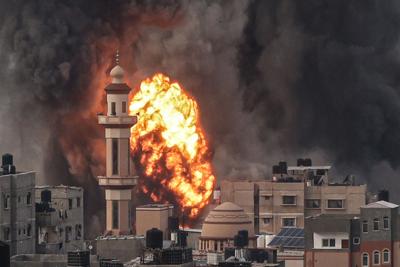As news broke out last week of Canada’s vote in favour of a UN General assembly resolution for a permanent ceasefire, a collective sigh could be heard across the country. For weeks, legal experts, and peace advocates have been slack jawed at a Canadian position ignoring international law on the Gaza response.
Canada finally listened and voted for peace. For that, Ottawa must be applauded. The government must now continue down this path and work to undo a number of votes and steps against international law.
For over two months, Canada has stood out and not in a good way. While most of our European allies, like Spain, Ireland, France, Belgium, and Switzerland joined the international chorus for a permanent ceasefire early on, Canada remained silent. In fact, Canada actively voted against critical UN resolutions supporting Palestinian rights.
In just the last eight weeks alone, Canada voted against resolutions requesting the UN Secretary-General take appropriate steps to protect Arab properties in Israel. It voted against resolutions recognizing the right of Palestinian people to claim restitution for damages by Israel to their natural resources and even against a resolution that called for the protection of civilians and upholding legal and humanitarian obligations.
Canada even voted against resolutions condemning the settlement activities in Occupied Palestinian Territory. Former Canadian ambassador to the UN, Louise Blais tweeted: "Canadians need to ask our government, the rationale behind this devastating decision for Canada’s standing in the world. From my experience, the US did not ask us to side with them. We did this on our own. But why? Because the cost is enormous, we should be told the reason."
The damage to Canada’s reputation has been done. Each of its UN votes a reminder that Canada vacillates: its foreign policy says one thing; but it does another. Under heavy criticism, the Canadian delegation to the UN recently tried to justify its voting record on the basis that the “resolutions aren’t balanced.” This doesn’t appear to be a problem for many of our European allies each of whom have supported countless resolutions affirming Palestinian rights. It is disingenuous to talk about balance at the cost of justice.
Canada’s reluctance is somewhat understandable. The U.S. ardently supports Israel and has no doubt been exerting pressure on Ottawa. Likewise, Israel, from whom Canada enjoys over $3.1 billion in direct investment, has long marshalled its own lobbyists.
Even the liberal caucus was divided, with over 30 Members of Parliament urging the government to call for a permanent ceasefire. Stuck between the U.S. and Israel on one side and the rest of the world on the other, Canada’s position was unenviable. It has been trying, and failing, to walk a fine line, issuing statements in support of both Israel and Palestinian civilians while advocating for a two-state solution.
You might be interested in
Prior to this Canada wrote to the International Criminal Court asking it to reject cases brought against Israel and to the International Court of Justice pressing it to refuse to issue “an advisory opinion on Israeli practices in the occupied territories.”
By voting in favour of the ceasefire, Canada has taken a step toward redemption. But now it must do more. The Geneva Conventions are clear: states have an obligation to ensure that the Conventions are respected. The indiscriminate bombings are clear violations. In fact, since the end of the temporary ceasefire, Israel has increased its bombings on protected peoples and buildings, including health workers, hospitals, ambulances, the headquarters of the Palestinian Red Crescent Society, and the European Gaza Hospital. The situation is so dire that almost the entirety of Gaza is off-limits to humanitarian organizations.
As domestic pressure continues to mount from the pro-war lobby, Ottawa must remain on course. This crisis is a test of our commitment to peace and international law. Canada must not stand by while the world increasingly organizes against the bombings without it.
Canada must now retract its letters to the ICJ and the ICC, and use its influence to push for a ceasefire, release of all hostages from both sides, and an independent investigation of all parties.
To do anything less is to do nothing at all. Canada’s reputation depends on it.












